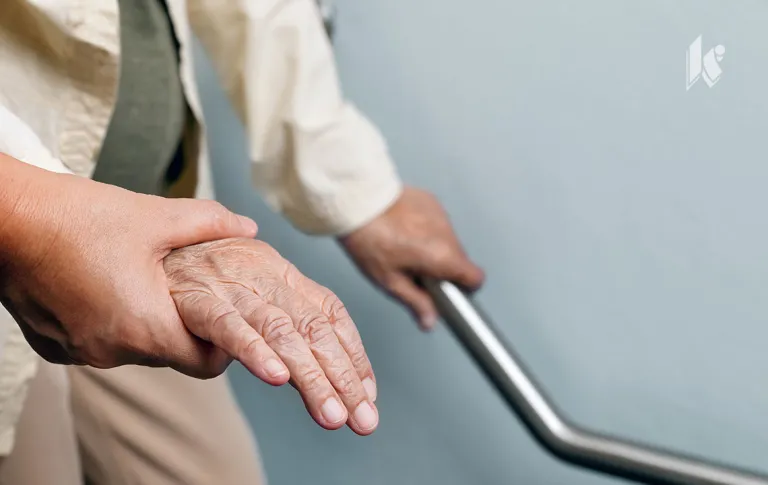
A common fear amongst most aging adults is falling. It’s an understandable fear, too; not only does the chance of falling increase with age, but the consequences of falling can be severe and long-lasting.
Luckily, there are things you can do to reduce your risk of falling. And remember: don’t let the fear of falling prevent you from doing activities. Doing nothing can actually increase your chance of falling. If you’re concerned about certain activities, speak with your doctor.
Here are some fall prevention tips:
- Go slow. Going fast increases the chance of losing your balance. This is especially true transitioning from sitting to standing, getting up after laying down, and going up and down stairs. Take your time when moving about.
- Light up your living area. Many falls are caused by tripping over something that was unseen. Keep areas well lit to avoid this common issue.
- Keep things tidy and in easy reach. Having to reach up high or down low can put you in a precarious position. Juggling multiple items while searching for something else can also be hazardous. Ideally, you’ll want to keep your things around waist level for easy reaching.
- Look at your living area for small things. Electric wires and rug edges can be big tripping hazards. Taping them to the floor can prevent them catching on your foot. Non-slip mats can also be incredibly useful, especially in the bathroom and kitchen where tile can get very slippery.
- Look at your living area for big things, especially furniture. If there’s some furniture in high-traffic areas, make sure they are moved to the side so you don’t bump into them.
- Do exercises that help improve balance. All exercise can help your balance, but some provide more balance support than others. Yoga, tai chi, and Pilates are some specific practices that can stretch and strengthen core muscles, while being low impact exercises. If that sounds intimidating, don’t worry! Even increased walking can leave lasting impacts. (Check around Kingsway to see what classes and groups are available to help!)
- Use assistive devices to help maintain balance. Sometimes you need the help of tools to maintain balance. This includes handrails on stairs, bars in showers or tubs, and canes and walkers. While some people may dislike using them, it’s important to remember that they are there to help you.
- Have helpful devices in case you do fall. It’s always a good idea to have a backup plan in case you do fall. Mobile devices, including mobile phones and specific fall-alert wearables, can be incredibly helpful. You should also know where the emergency pull-cord systems in your living space are. (At Kingsway, we have them in every bathroom and bedroom on our campus.)
Falls can still happen even with the best precautions in place, and certain medical events or procedures can further affect your strength and balance. At Kingsway, we understand the challenges that come with recovery, which is why our post-hospital rehabilitation services are designed to support your journey back to confidence and independence. Our individualized physical therapy programs focus on improving balance, mobility, and daily function to help you regain your best quality of life.
To learn more about how our rehabilitation services can aid in your recovery, visit our Rehabilitation page. You can also reach out to us through our Contact page.